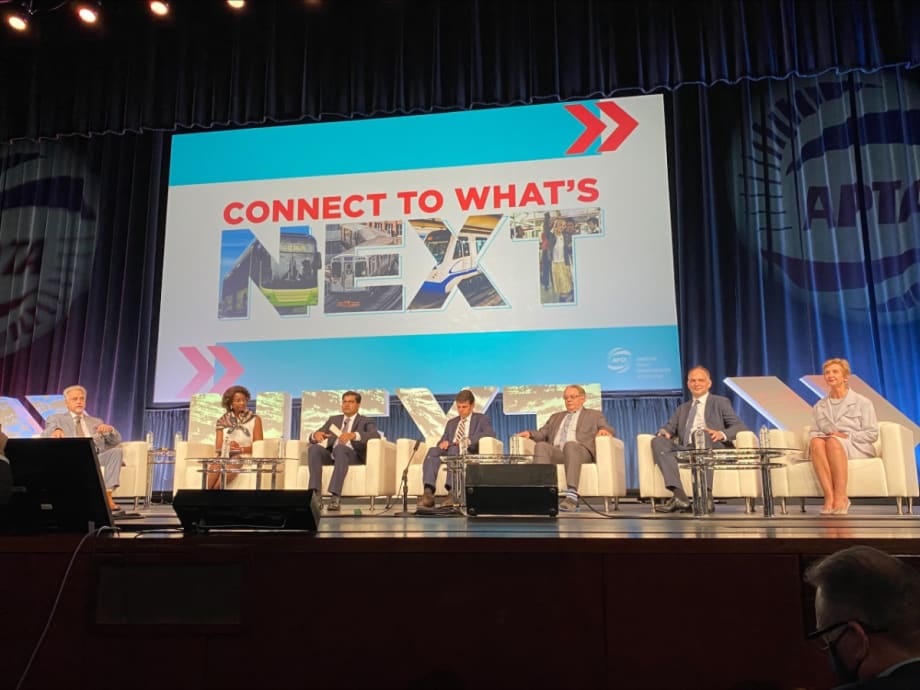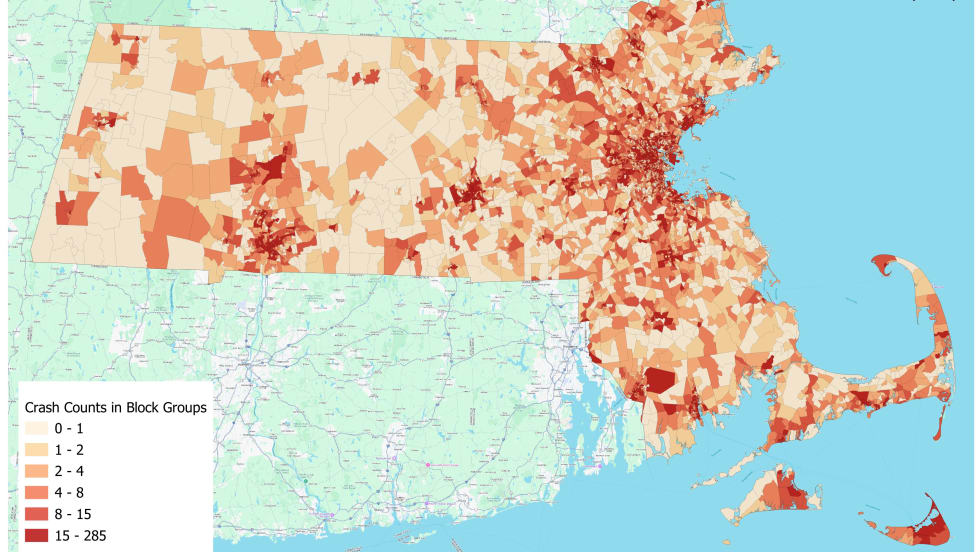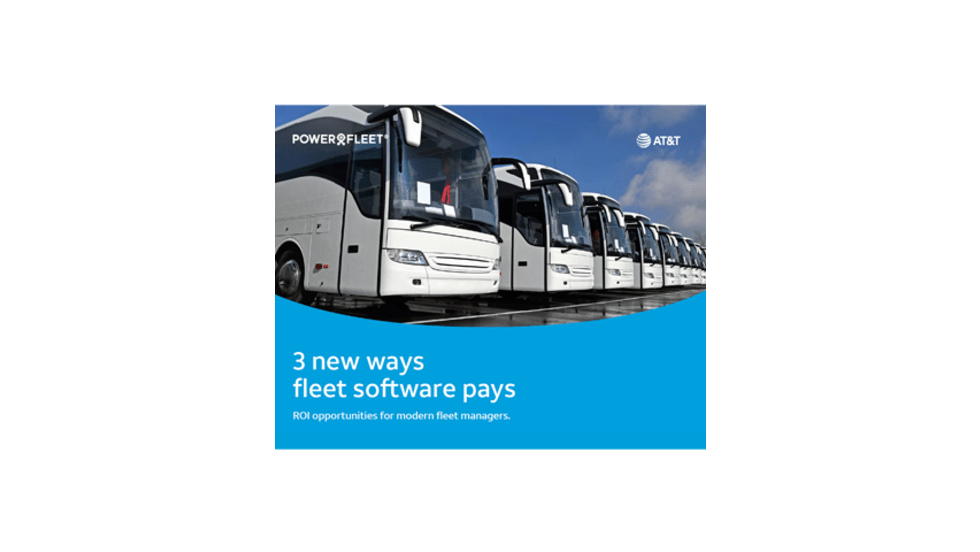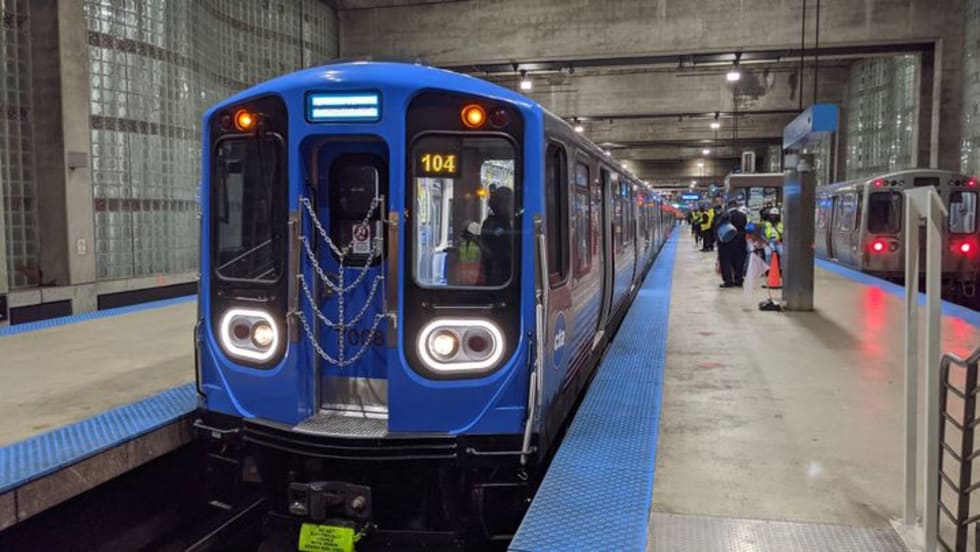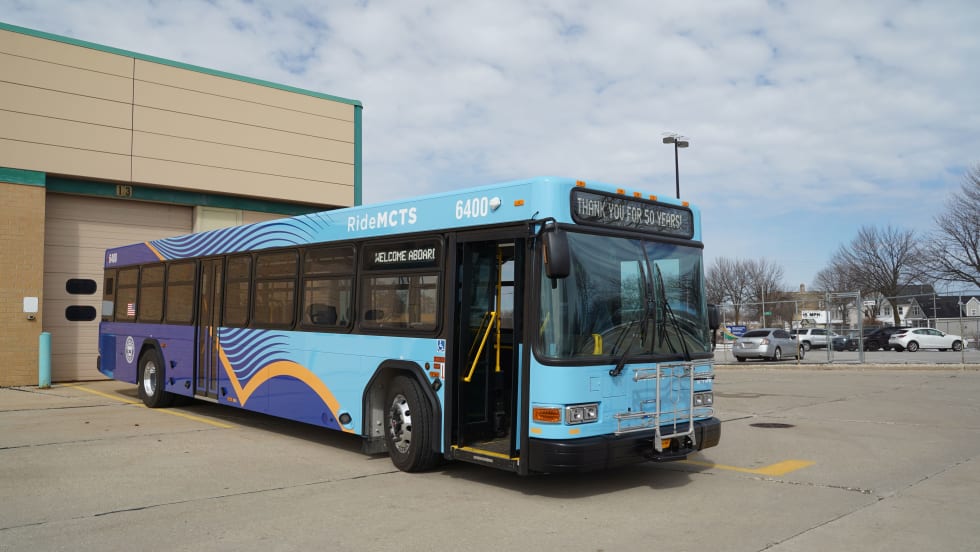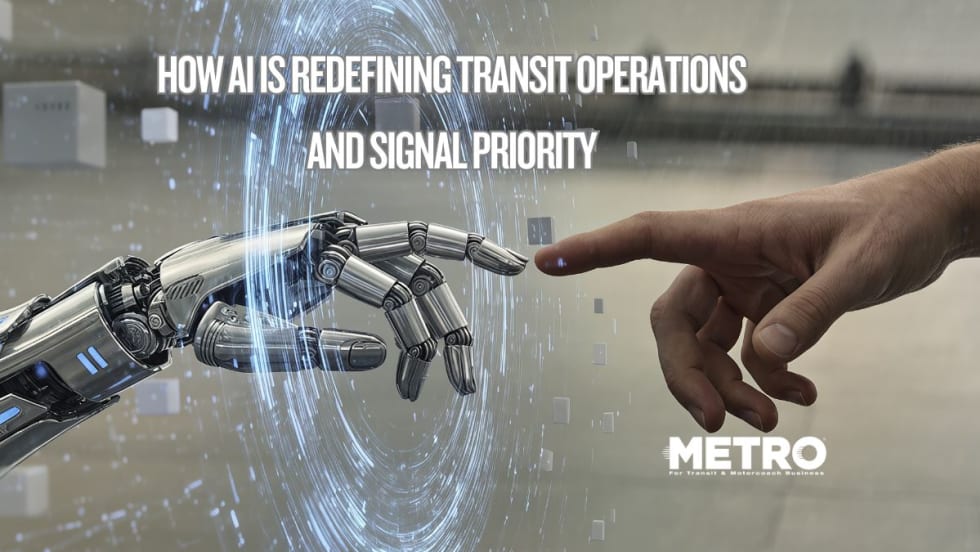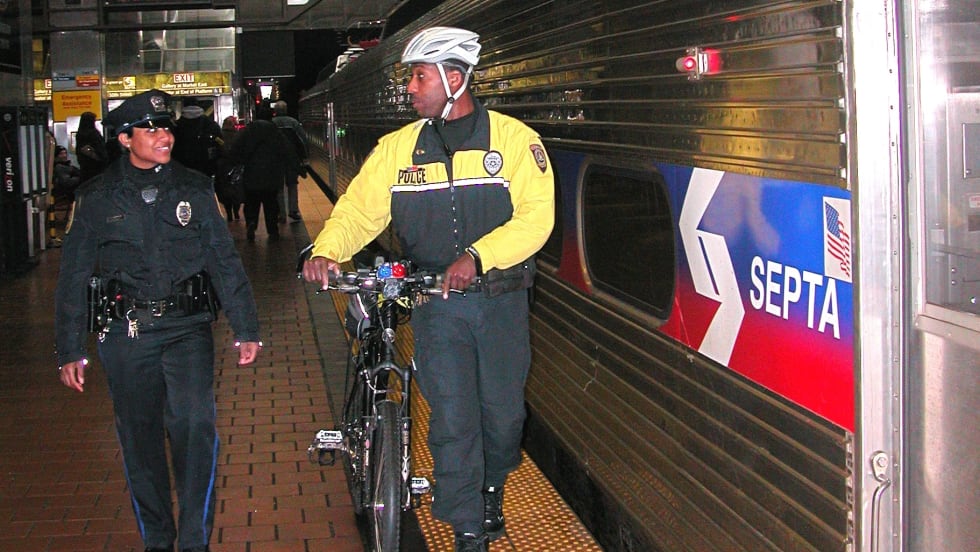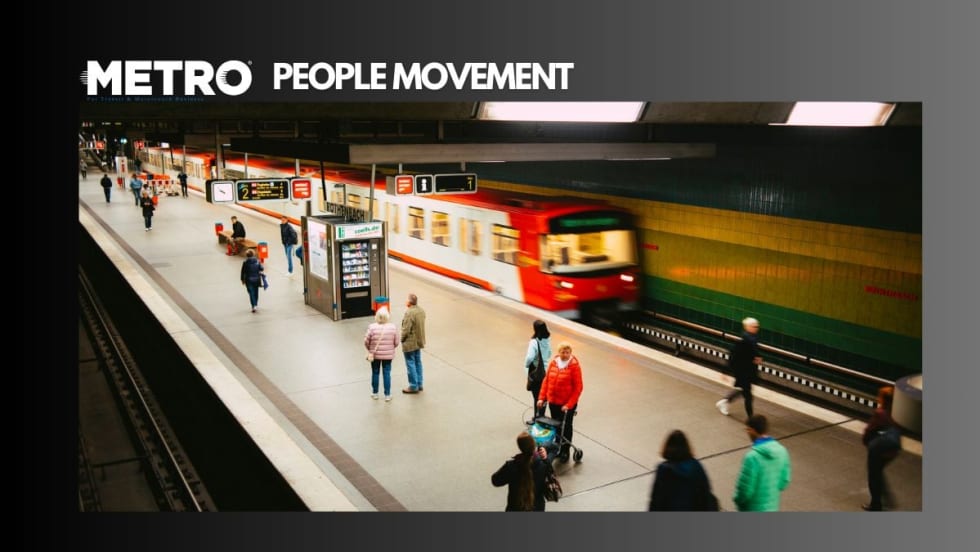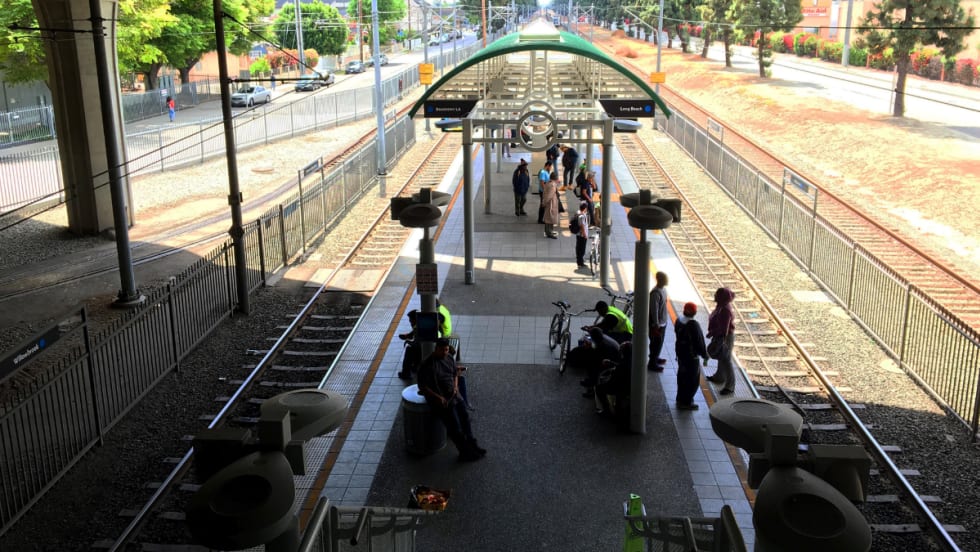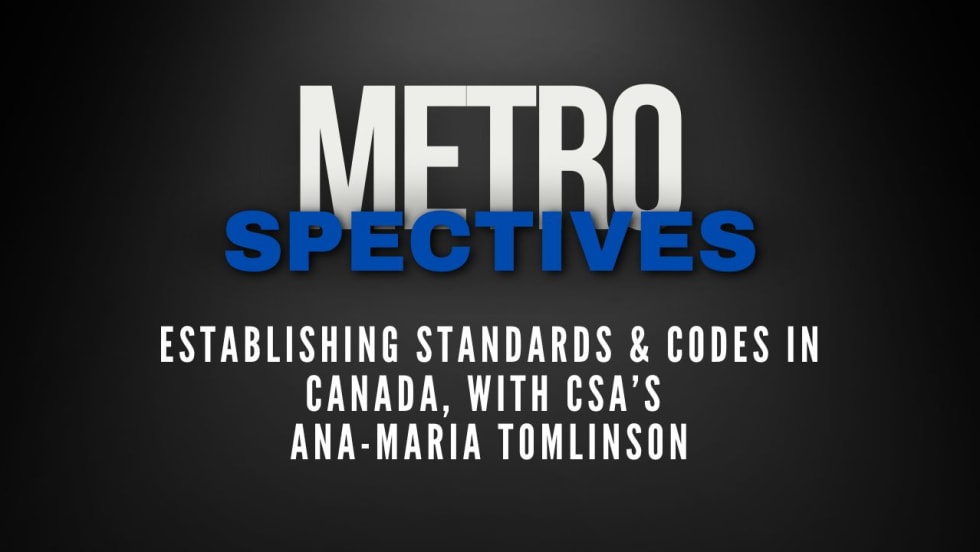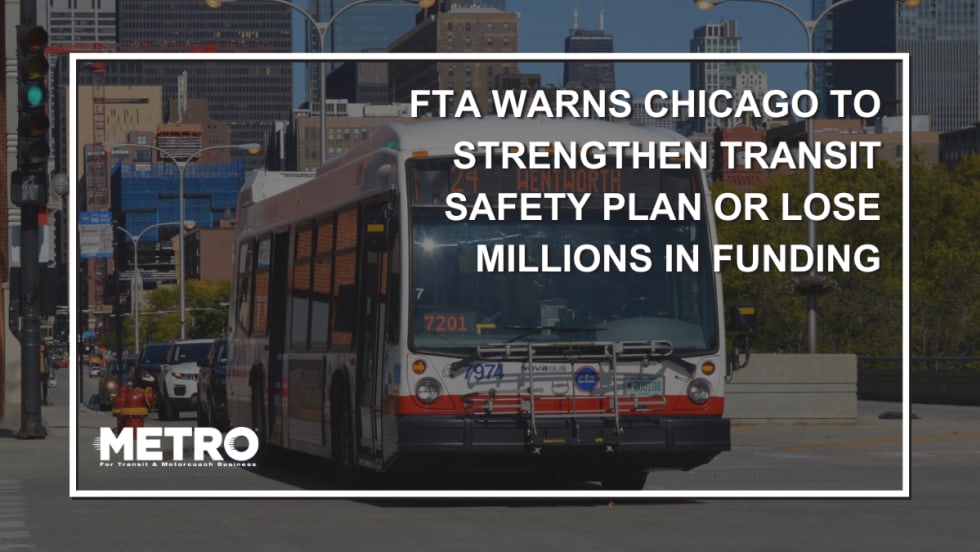The 2021 American Public Transportation Association (APTA) TRANSform Conference and Expo featured a Federal Partner Update session, which highlighted current safety initiatives and priorities of APTA’s federal partners.
The session began with a fireside chat between FTA Administrator Nuria Fernandez and FRA Deputy Administrator Amit Bose on the state of the industry, COVID-19 funding, administration priorities, and IIJA opportunities.
Bose said the COVID-19 pandemic was at the top of FRA’s list. He cited mask requirements as one of the ways the administration aimed to improve safety during the pandemic.
Moderated by Joseph J. Giulietti, Connecticut Department of Transportation commissioner, a panel discussion followed the fireside chat.
Panelists included: Stephen J. Gardner, President, AMTRAK president, Gregory K. Hynes, SMART Transportation Division national legislative director, Jeffrey Rosenberg, Amalgamated Transit Union director of government affairs, and Polly Hanson, APTA senior director of Security, Risk and Emergency Management.
One of the issues discussed was the growing cases of assaults among passengers and operators.
“It’s an issue that the FRA is paying attention to,” Bose said. “ It’s hard to know exactly where the increases have originated from. There is definitely a correlation with the mask requirement. At the FRA, we are staying in touch with our providers and railroad companies.”
Hanson believes there is a correlation between assaults and mask mandates.
Hanson mentioned how technology and engineering can support a decrease in assaults. She also said companies have been exploring putting cameras and shields on its buses.
AMTRAK is experiencing this issue, too.
“This is a pressing issue at AMTRAK,” Gardner said. “In 2021, we saw a 20 percent reduction from the 2019 results. About 25 percent of assaults occurred on a train.”
Gardner said there has also been an increase in disorderly conduct, with about 70% taking place on board. About 40% of those are because of the mask requirement, according to Gardner.
Hynes says one of the problems that he sees is the data collection, and he is concerned with weapons on AMTRAK, as well.
“That’s something that needs to be talked about and looked at,” Hynes said.
The session concluded with a look at rider safety.
“From a passenger’s perspective, we hear clear messages,” Gardner said. “People are comfortable when there is a safe, moderate facility. Equally important is a uniformed, staffed presence. We have to let people know they are not alone and they are supported.”
Rosenberg said there is an equal interest in safety between passengers and operators.
“Transit is a very safe industry,” Rosenberg said. “I think the operators have the same type of interest as the passengers. If you keep the operators safe, you can do the same with passengers.”



